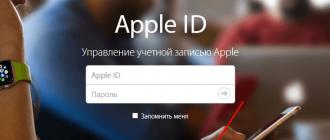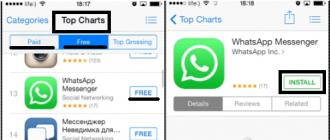Anthology of preschool education. Navigator of projects of exemplary basic educational programs: collection / Ed. A.S.Rusakov. M.: National education, 2015.
"Anthology of Preschool Education" is a unique project of scientific and methodological support for the implementation of the Federal State Educational Standard for Preschool Education (FSES DO), implemented under the scientific guidance of Academician of the Russian Academy of Education A.G. Asmolov with the scientific and methodological support of FGAU "FIRO". The project unites the efforts of leading developers of modern educational programs for preschool education, developers of educational and methodological aids for preschool organizations.
The Curriculum Project Navigator kicks off the book series and provides readers with first-hand, author-led, up-to-date information on new or updated Core Preschool Curriculum Projects.
This collection includes an overview of the programs "Kindergarten - House of Joy", "Childhood", "Kindergarten according to the Montessori system", "Inspiration", "Origins", "Paths", "Rainbow", "From birth to school", " Success”, “Discoveries”, “Worlds of Childhood”, as well as other comprehensive programs that meet the requirements of the Federal State Educational Standard.
The publication is intended for leaders of preschool educational organizations, teachers, parents, as well as for everyone who is interested in the successful development of the child.

Foreword
Alexander Grigorievich Asmolov,
academician of the Russian Academy of Education, scientific supervisor of the project,
Director of Federal State Institution "Federal Institute for the Development of Education"
Dear friends!
Every time I see familiar and unfamiliar faces at numerous meetings with managers and workers of preschool education, I think about how many people gather today to discuss the most key problems of the country - preschool childhood projects? and understand how we can move forward.
In recent years, I have always repeated the phrase: “When the country is in trouble, preschoolers go ahead!”
In relation to the standards of other levels of education, the standards of preschool education today act not only as the first in the sense of ontogenesis, but also as setting the logic for the change and transformation of all educational standards.
The standard of preschool education is a change in the entire ideology of education in Russia.
When designing the standard and the main educational programs, we clearly bring to the fore the new ideology of education: in the education of Russia, the ideology of development is put at the head of ideology as a leading value. It would seem that this is a banality, but this banality has to be emphasized and affirmed.
Many of you probably remember the Soviet film "The Secret of Two Oceans", based on the story by Grigory Adamov. There was a submarine called "Pioneer". During the heroic transition from the Atlantic to the Pacific Ocean, this boat fell into the ice. The ice bound her. The captain of the Pioneer had to find a way out of the ice trap. And then he gave the command to warm up everything in front of the boat by any means. The ice melted, the grip of the ice weakened, the boat moved forward and became ice-bound again, the ice warmed up again, and the boat moved forward again. And with such pulsating movements, the Pioneer began to break out of the icy jaws of the ocean.
The same situation we have now in education. Our ideology of pre-school education helps education in Russia to get out of the icy shackles, helps to overcome the icing.
What is the image of education, such are the actions of educators, teachers and managers.
What is the image of the child, such are the actions of those teachers who work with him.
And what is the image of the child in our minds?
The first image presents us with a child as a reactive being, a child as a bag full of conditioned and unconditioned reflexes. The child is like Pavlov's dog. If we think of a child as a reactive being, then we need to develop skills and reflexes. And then the main logic of the development of the child will be the logic of the development of training. Who is the teacher then? Who then is the Minister of Education of the country? Trainer.
Today we offer a completely different image of the development of a child: a child is a unique, competent, understanding and initially suffering creature. A child is not a bag of reflexes, as behaviorists believe. The child is a unique subject of development. What is the starting point for this development? Support for children and adults. Not an adult in itself, not a child in itself. It is the assistance of a child and an adult that is a symbiosis, a unique developing gestalt. When a child and an adult find themselves in the same space. When it is one integrity that cannot be broken. How we build a strategy for relationships with a child, so everything will continue to grow. Nothing will be possible without this support.
And this means that in the standard of education we bring to the fore not the child as such, not the adult as such, but together the child, adults and the space in which they exist, the organization of the relationship between the child and the adult.
From here, the next move is the construct of the space of preschool childhood. How to build a childhood space, how to build kindergartens, how to build training programs for educators and teachers. These are incredibly important things.
One of the risks of education arising from the image of a person as a robot is the reduction, the reduction of education to the service sector. We must understand that education is not a reality that can be reduced to the service sector.
But when it all comes down to the fact that education is not an institution for personal development, but a service sector, we lose. Not so long ago, I spoke with one of the leading economists of the country, Alexei Kudrin, and he asked me the question: “What is wrong with the fact that education is only a service?”
Development in childhood should not be reduced to service!
When we say that the ideology of development comes from preschool, we are saying that the ideology of DEVELOPMENT is the key to all education in Russia.
And here the biggest risk is the predominance of control over development over development itself.
Education, and this is the key principle of our life, is always redundant in relation to the needs of people. The principle of redundancy of education to the needs of the market is a key principle, and it is impossible for education to fall under specific momentary tasks.
Education is the zone of proximal development of the country's market economy. If we do not understand this, then what kind of future awaits us? ..
We are in a zone where the key challenge is the challenge of uncertainty, and if we do not understand this, then we will lose. Management and science are not two parallel lines, they must intersect with each other and literally "fertilize each other", nothing will work without this, and this must be clearly understood and go and move in this direction and this way.
The Anthology of Preschool Education project is a navigator in the world of preschool childhood full of risks and surprises, a navigator in the new reality of preschool education, designated by the Federal State Educational Standard. Laws, standards, normative documentation, projects of Exemplary basic educational programs, methodological and educational complexes are the basis for designing our near future.
It is necessary so that in each preschool organization you have the opportunity to competently choose the path along which we will go further. The key implementation of the principles of Russian education is laid down in the Anthology of Preschool Education. To decide something, you need to have something to choose from.
A special edition in this series - "Navigator of educational programs of preschool education", compiled for you by the director of the Agency for Educational Cooperation Andrei Sergeevich Rusakov, - opens up to you the vision of modern preschool education, the vision of a new standard through the eyes of the authors of educational programs.
I want each of you to make a choice today!
Childhood is the most important period of human life, not a preparation for a future life, but a real, bright, original, unique life. And on how childhood passed, who led the child by the hand in childhood, what entered his mind and heart from the outside world, it depends to a decisive extent on what kind of person today's baby will become.
V.A. Sukhomlinsky
The main educational program of preschool education- this is a regulatory and managerial document of a preschool educational organization that characterizes the specifics of the content of education and the features of the organization of the educational process. The program is developed, approved and implemented by the educational organization in accordance with the Federal State Educational Standard for preschool education and taking into account the exemplary educational program for preschool education.
The program should ensure the construction of a holistic pedagogical process aimed at the full-fledged comprehensive development of the child - physical, socio-communicative, cognitive, speech, artistic and aesthetic. One of the provisions of the Action Plan to ensure the introduction of the FSES DO is the provision on the introduction of the Federal Register of exemplary basic educational programs used in the educational process in accordance with the FSES DO.
Website of the federal register of exemplary basic general education programs: fgosreestr.ru. It published the "Approximate basic general educational program of preschool education", approved by the decision of the federal educational and methodological association for general education (minutes of May 20, 2015 No. 2/15).
On the website of the Federal State Autonomous Institution "Federal Institute for the Development of Education" (FGAU "FIRO") www.firo.ru, a section "Navigator of educational programs of preschool education" has been created. On our site we publish a list of these programs with links to the publishers that produce them. On the websites of publishing houses you can get acquainted with projects, presentations of programs, accompanying methodological literature.
Educational programs of preschool education that correspond to the Federal State Educational Standard of DO:
Educational program of preschool education "Colorful Planet"
/ Edited by E.A. Khamrayeva, D.B. Yumatova (Scientific adviser E. A. Khamraeva)
Part 1 Part 2
Publishing house "Juventa":
uwenta.ru
Educational program of preschool education"World of Discovery"
/ Under the general editorship of L.G. Peterson, I.A. Lykova (Scientific adviser L.G. Peterson)
The site of the TsSDP "School 2000 ...":
www.sch2000.ru
Publishing House "Color World":
colored world. rf
Educational program of preschool education for preschool children with severe speech disorders / Ed. L. V. Lopatina
If you liked the material, click the button of your social network:
Maidankina N.Yu.,
cand. ped. Sciences, Associate Professor, Chief Specialist of the Department of Organizational and Methodological Work of the Center for Education and System Innovations of the Ulyanovsk Region, Ulyanovsk
The target guidelines for preschool education in the context of the introduction of the Federal State Educational Standard for DO are the provision of state guarantees of the level and improvement of the quality of preschool education based on the unity of requirements for the structure of basic educational programs.
In 2015, the Federal Educational and Methodological Association for General Education approved the Exemplary Basic Educational Program for Preschool Education (Minutes No. 2/15 dated May 20, 2015). Subsequently, a navigator of educational programs of preschool education approved for implementation in the educational process of preschool education was formed. According to the document, the list includes more than 20 educational programs developed in accordance with the requirements of the Federal State Educational Standard, including "Origins" ed. L.A. Paramonova, "From birth to school", ed. NOT. Veraksy, T.S. Komarova, M.A. Vasilyeva, Childhood, ed. T.I. Babaeva, A.G. Gogoberidze, O.V. Solntseva and others.
The appearance of this list helps the teaching staff of the preschool educational institution to make a choice of copyright educational programs for implementation in the educational process and contributes to the development of the Mandatory part of the main educational program of the preschool educational institution.
At the same time, the FGOS DO recognizes the introduction of children to socio-cultural norms, traditions of the family, society, taking into account the social and ethno-cultural situation of children's development as the most important principle of preschool education. In paragraph 2.9 of the Federal State Educational Standard, it is noted that in “the part formed by the participants in educational relations, Programs selected and / or developed independently by the participants in educational relations should be presented, aimed at the development of children in one or more educational areas, activities and / or cultural practices (hereinafter - partial educational programs), methods, forms of organization of educational work.
Of course, at present, preschool educational institutions have the opportunity to independently develop educational programs, however, for various reasons, not every teaching staff and educator are able to use it (different levels of professional readiness, personal motives and preferences, etc.).
In this regard, in order to provide conditions for improving the quality of the preschool education system in the context of regional specifics and in addition to the federal navigator of educational programs, there is a need to create a regional list-navigator of partial educational programs along the leading lines of child development, taking into account social (including ethnocultural) situation of development. We believe that the regional navigator of partial educational programs, taking into account the situation of development in the region, will assist pedagogical workers in ensuring the quality of educational activities in the preschool educational institution and assist in the development of the Part formed by the participants in educational relations of the main educational program of the preschool educational institution. In addition, the navigator contributes to the dissemination of the best regional pedagogical experience and serves as a serious factor in updating the teacher's potential.
The process of constructing a regional navigator requires taking into account a number of factors and answering the questions: "What partial educational programs can form the basis of a regional navigator?", "What is the mechanism and procedure for constructing a program navigator?"
Partial educational programs. For 20 years, the regional program for the development of innovative processes (RIP) has been operating in the Ulyanovsk region, in which pedagogical teams of preschool educational institutions, located both in the city and in the countryside, take part.
As part of the terms of reference of the RIP, partial educational programs for preschool education have been developed and are being successfully implemented in the main areas of the Federal State Educational Standard for Education: social and communicative, cognitive, speech, artistic, aesthetic and physical development of children.
The problem of developing content and technologies that contribute to the organization of the process of raising and educating children on the basis of regional socio-cultural and spiritual and moral traditions is topical; modeling an open educational environment that ensures the interaction of the teaching staff with institutions and parents of pupils within the framework of social partnership; the formation of citizenship in children in the context of interaction with institutions that are part of the nuclear innovation, aviation, and agricultural clusters; development of children's interest in the world around on the basis of the dialogue of cultures of the peoples of the Volga region, etc. The content of educational materials reflects the social situation of development and is aimed at the successful socialization of the child. It contributes to the formation of personal qualities of children in the process of familiarization with socio-cultural values and natural attractions, social and economic realities of the Ulyanovsk region.
The effect and result of mastering the content of partial educational programs is achieved using the technologies of network interaction of the teaching staff with institutions of culture, sports, science, industrial and agricultural enterprises (Ulyanovsk State Agricultural Academy, Scientific Research Institute of Nuclear Reactors in Dimitrovgrad, Aviastar JSC and etc.). To model a regional socio-cultural educational space in order to form the foundations of a common culture in children, develop communication skills, a number of programs provide for networking with regional creative associations of artists, poets, musicians, masters of arts and crafts, etc.
In addition, we note that as a result of the innovative activities of teaching staff within the framework of the RIP program, such a criterion was initially laid down as the introduction of an innovative product - programs, technologies, methodological support - into the pedagogical practice of the region's preschool educational institutions.
It is these partial educational programs developed by teaching staff, participants of the regional RIP program, which have passed the examination of the regional expert council, having an external independent assessment (programs are presented in various federal competitions, materials are published in the regional and central press) reasonably claim to be included in the regional navigator.
Competitive selection. To include partial educational programs in the regional navigator, it is necessary to go through a competitive selection procedure based on the following criteria:
- relevance for solving the problems of the regional system of preschool education, including in such areas as social and communicative, cognitive, speech, artistic, aesthetic and physical development;
- the novelty of the content, taking into account the social situation of the child's development; the validity of the use of forms and methods of work;
- the effectiveness of educational activities, the organization of interaction with the parents of pupils;
- the effectiveness of the presented program;
- human resources for the implementation of the program.
Point indicators are determined: 0 points - insufficiently presented; 1-3 - mostly enough; 4-5 points is enough.
According to the results of the competition, partial educational programs for implementation in the educational process of the region's preschool educational institutions are selected in the following areas:
- partial educational programs for organizing educational activities with young children;
- partial educational programs for organizing educational activities with preschool children;
- partial educational programs for working with children with disabilities.
Distribution of partial educational programs. To coordinate the dissemination of partial programs included in the regional navigator, a regional pedagogical lounge is being created, within the framework of which training seminars, open demonstrations of educational activities, master classes, and internships based on preschool educational institutions are organized.
The main educational programs are normative documents, through which the main characteristics of this process, forms of pedagogical influence and educational measures are determined. They should be variable, since it is necessary to maintain the diversity of childhood, that is, the activities of preschool children, without which its development will not be complete.
A variety of educational programs for preschoolers allows teachers in preschool educational institutions to vary methods and educational techniques to provide children with a variety of leisure activities, as well as to provide the child with opportunities for development. Education programs are aimed at developing the following aspects:
- Raising the value status of childhood in society;
- New ways to motivate children;
- Development and increase in the number of innovative programs for teachers in order to increase the motivation of children.
Main program
The exemplary educational program developed by FIRO is a provision according to which teachers are invited to increase the motivation of children for learning through various types of activities: gaming, cognitive, communicative and others. Through these activities, a positive socialization of children is also achieved, aimed at ensuring the diversity of the childhood period and preserving the individuality of each child.
The program is aimed at modeling social situations in which the child will have to acquire the qualities and skills necessary for socialization. It involves the use of the following basic principles:
- First of all, the principle of the diversity of childhood must be respected, since in the conditions of Russia with its diversity of cultures, peoples and ethnic groups, each representative of any of them must preserve their identity;
- The principle of preserving the uniqueness of childhood implies the recognition of this period in a person's life as independent, and not preparatory to adulthood;
- The principle of positive socialization implies the possibility of a full-fledged activity of the child in the process of mastering cultural, family, social and other values and norms;
- The principle of individualization implies the ability of the child to develop in an individual direction within the framework of the learning process with its characteristic speed and specificity.
These provisions will allow teachers to come closer to improve their methods and make the learning process for children more enjoyable and rewarding.
This collection includes an overview of the programs "Kindergarten - House of Joy", "Childhood", "Montessori Kindergarten", "Inspiration", "Origins", "Paths", "Rainbow", "From Birth to School", " Success", "Discoveries", "Worlds of Childhood", as well as other complex ...
"Anthology of Preschool Education" is a unique project of scientific and methodological support for the implementation of the Federal State Educational Standard for Preschool Education (FSES DO), implemented under the scientific guidance of Academician of the Russian Academy of Education A.G. Asmolov with the scientific and methodological support of FGAU "FIRO". The project unites the efforts of leading developers of modern educational programs for preschool education, developers of educational and methodological aids for preschool organizations.
The Curriculum Project Navigator opens the book series and provides readers with the opportunity to get first-hand - from the authors - the most up-to-date information about new or updated educational programs for preschool education.
This collection includes an overview of the programs "Kindergarten - House of Joy", "Childhood", "Montessori Kindergarten", "Inspiration", "Origins", "Paths", "Rainbow", "From Birth to School", " Success", "Discoveries", "Worlds of Childhood", as well as other comprehensive programs that meet the requirements of the Federal State Educational Standard.
The publication is intended for leaders of preschool educational organizations, teachers, parents, as well as for everyone who is interested in the successful development of the child.






